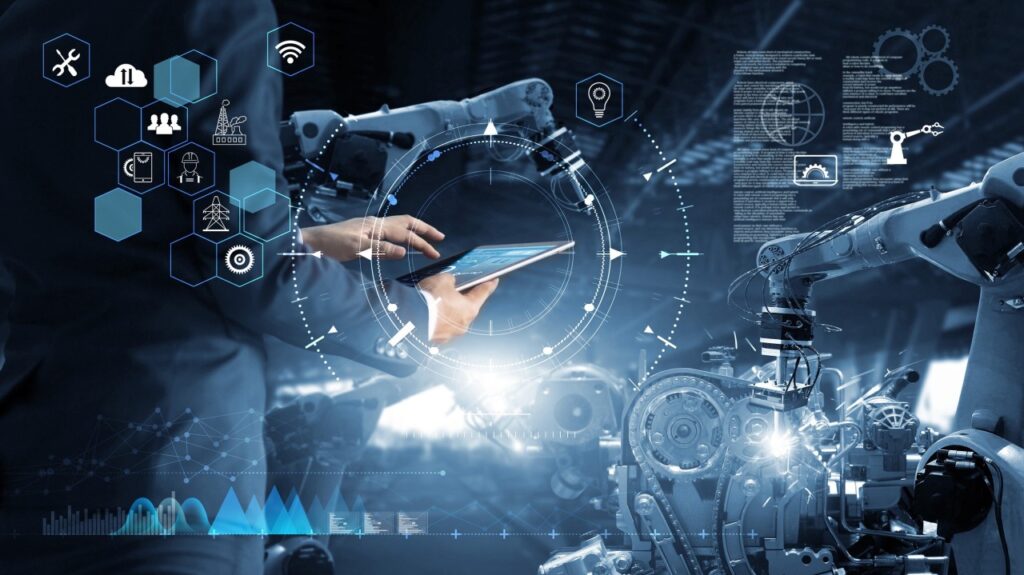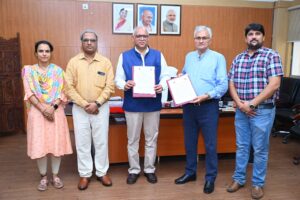
By Sunil Goyal, senior freelance journalist and researcher
The global workforce is undergoing a dramatic transformation, driven by rapid advancements in automation, artificial intelligence (AI), and digital learning. Two emerging trends- the Dark Factory Revolution and the University in a Laptop- are set to redefine the way we work and learn. These concepts not only challenge traditional employment structures but also demand a fundamental shift in how skills are acquired and applied in the modern economy.
A Workforce without Workers?
The term Dark Factory refers to an industrial facility that operates with minimal to no human intervention. These factories function in a “lights-out” environment where robotics, AI, and the Internet of Things (IoT) handle everything from production to logistics. Companies are increasingly adopting this model to reduce costs, eliminate human errors, and maximize efficiency. In industries such as automobile manufacturing, electronics, and logistics, dark factories are already operational, demonstrating the potential of full automation.
However, this shift raises critical concerns. If machines take over most of the manufacturing and production work, where does that leave human workers? According to estimates, automation could replace millions of jobs globally in the coming decades.
But instead of outright job elimination, what we are likely to witness is job evolution, where routine, repetitive tasks are automated, while human roles shift towards managing, programming, and optimizing these intelligent systems. The workforce will need to transition from manual labor to knowledge-driven roles that require creativity, problem-solving and technical expertise.
The University in a Laptop: The Future of Education
As industries transform, so must the education system. The traditional model of higher education- campuses, fixed curricula, and years-long degree programs is increasingly being challenged by a more flexible, technology-driven approach. The University in a Laptop concept envisions a future where learning is no longer confined to classrooms but is available anytime, anywhere, through AI-powered digital platforms.
This shift is already taking shape through online courses, micro-credentials, AI tutors, and immersive simulations. Companies like Google, Microsoft, and IBM are prioritizing skills-based hiring over traditional degrees, offering certifications that carry more value in certain industries than a conventional university degree.
Personalized learning paths powered by AI will enable individuals to acquire and update their skills continuously, ensuring they remain relevant in a rapidly evolving job market. The emphasis will move from acquiring a single degree to lifelong learning, where professionals constantly upgrade their knowledge and expertise to stay competitive.
Impact on the Global Workforce
The combined influence of dark factories and digital learning will fundamentally alter the global employment landscape. Jobs that rely on repetitive, physical labor will decline, while demand for tech-savvy, problem-solving professionals will rise. The gig economy will expand as more people choose flexible, project-based work over traditional full-time employment. Remote work will become even more common, as digital education breaks down geographical barriers, allowing companies to hire talent from anywhere in the world.
To navigate this transformation, governments, businesses, and educational institutions must collaborate to create policies that support upskilling and reskilling. Social safety nets will need to be strengthened to help workers transition from outdated roles to new opportunities. The challenge is not just about keeping up with technological advancements but ensuring that people have the tools and knowledge to thrive in this new world.
Adapting to the Future: A Call for Action
The future of work will not be about surviving automation but adapting to it. Those who embrace digital learning and acquire future-ready skills will be at the forefront of this revolution. Companies will prioritize employees who can seamlessly integrate technology into their work while bringing uniquely human qualities i.e. creativity, empathy and critical thinking to the table.
The Dark Factory Revolution and the University in a Laptop are not distant possibilities; they are already unfolding. The question is not whether the world is ready for this transformation, but how quickly individuals, industries, and governments can adapt. The workforce of tomorrow will belong to those who see change not as a threat but as an opportunity to innovate, learn, and lead.







